P28: GOVEERNMENT
Taking a look at the past year with Labour in power
P38: SCALING UP Sector leaders share how to successfully expand your business

P28: GOVEERNMENT
Taking a look at the past year with Labour in power
P38: SCALING UP Sector leaders share how to successfully expand your business
P42: PENSIONS
Advice on preparing for the future and why it should start now
P45: INCLUSIVITY
Top tips for creating an all-inclusive business for staff and clients
Since 1836 the Hair & Beauty Charity has helped those in our industry who have fallen on hard times. support those who need it most. is our duty to help them in their time of need.

5 Hello and welcome
Chief executive Caroline Larissey dedicates this issue of salonfocus to strengthening resilience
6 The 20 news things you need to read this issue
Instagram updates, aesthetics regulation changes, and business questions answered
24 Surviving & thriving
Taking a look at the sector’s resilience –and how it has navigated ups and downs in the 80-plus years since the NHBF was founded














28 Government
Looking back on the last 12 months under the new Labour administration
32 Adaptability
Errol Douglas MBE reveals how reinvention and relevance have kept his business going over the years
35 Apprenticeships
What’s the answer to the hair and beauty apprenticeship issues in England? The NHBF has some suggestions
38 Scaling up
When is the right time to expand? Sector leaders share their top tips for taking your business to the next level
42 Pensions
The future is now – make pension planning a priority
45 Inclusivity
How to make your business inclusive and welcoming to all – clients and staff

48 Mood board
Check out the latest posts of Members’ work that caught our eye!
50 60 seconds with... Tatti Lashes co-founder Elliot Barton

The magazine of the National Hair & Beauty Federation
THE NHBF
One Abbey Court Fraser Road Priory Business Park Bedford MK44 3WH 01234 831965
nhbf.co.uk
sfenquiries@salonfocus.co.uk
CHIEF EXECUTIVE
Caroline Larissey
HEAD OF SALES AND MARKETING OPERATIONS
Farooq Ali
EDITORIAL
Editor Hollie Ewers
hollie@salonfocusmagazine.co.uk
Content sub-editors James Hundleby, Kate Bennett
DESIGN
Art Editor Tom Shone
Picture researcher Jessica Marsh
ADVERTISING
advertising@salonfocusmagazine.co.uk 020 7880 6230
PRODUCTION
Production director Jane Easterman
Account director Joanna Marsh joanna.marsh@redactive.co.uk
PRINTER
Manson Group, St Albans
COVER ILLUSTRATION
Shutterstock
© The NHBF 2025 ISSN 1756-6347
All views expressed in salonfocus are not necessarily those of the NHBF. All efforts have been taken to ensure the accuracy of the information published in salonfocus However, the publisher accepts no responsibility for any inaccuracies or errors and omissions in the information produced in this publication. No information contained in this publication may be used or reproduced without the prior permission of the NHBF.
Recycle your magazine’s plastic wrap. Check your local LDPE facilities to find out how.









As summer unfolds around us, I’m struck by the remarkable journey we’ve navigated together in just three months since our Spring edition.
Resilience isn’t just a buzzword for our sector – it’s our foundation. In these uncertain economic times under the Labour government, with wage increases and regulatory changes creating headwinds, Members have demonstrated that resilience means adapting quickly, finding creative solutions and supporting one another through every challenge.
This Summer 2025 issue is dedicated to strengthening that resilience. We’re deliberately drowning out the negativity that can so easily cloud our vision and instead positively championing every success across our sector. Each page celebrates what’s possible when we focus on what we can control and amplify the extraordinary talent within our community.
and growing your business through influential partnerships.
The heart of this edition features inspiring stories from Member businesses who refuse to be defined by challenges (page 24). We also have Errol Douglas MBE sharing wisdom on transforming obstacles into opportunities (page 32), while our special feature on scaling up your business (page 38) offers actionable steps for growth even in uncertain times.
Remember, your collective voices are being powerfully amplified through our dedicated lobbying efforts. The NHBF stands strong beside you – not just weathering this storm, but helping you harness its energy to propel your business forward. Together, we’ll continue focusing on the positive, celebrating our strengths and building a resilient future that no economic uncertainty can shake.


You’ll discover practical tools to build momentum, from Instagram strategies that showcase your exceptional work (page 11) to insights on connecting with local talent















The
NHBF’s latest State of the Industry survey reveals the negative effects of the Autumn 2024 Budget.
Since the last survey in January, more businesses are reporting losses (21%, up from 17% in January) and turnover expectations have worsened, with 30% expecting a decline over the next three months. However, 40% of businesses are turning a small or good profit, and 39% are breaking even, reflecting the sector’s resilience and determination, despite mounting challenges.
Raising prices is the main way businesses are adapting to challenges, with 74% of respondents confirming having put up prices in the past three months. This is the highest level since the survey began in 2020.
NHBF chief executive Caroline Larissey said: ‘Despite considerable pressures, it’s clear that many hair and beauty businesses are showing real resilience. But they cannot do it alone. With the right support – from VAT reform to practical help with apprenticeships and energy bills – we believe this sector can not only recover but grow. The NHBF is committed to ensuring its Members have the guidance, resources and representation they need to thrive. We urge government to act decisively to unlock the full potential of this vibrant sector.’
Other findings include: STAFFING
● 60% are holding off taking on new staff or apprentices
● 32% are reducing staff hours
● 17% would switch to a selfemployed staff or hybrid model.
SURVIVAL
● 68% are confident about their business survival prospects
● 31% are unsure if they’ll survive
● 27% are planning to downsize or hand over the business (the highest level recorded).
GOVERNMENT SUPPORT
● 73% said reducing VAT would be most beneficial
● 41% would prefer a slower rise to minimum wages
● 36% called for more incentives for taking on apprentices.
The NHBF has decided to reduce its State of the Industry survey frequency from quarterly to twice a year to help address survey fatigue in the sector, and to demonstrate a willingness to be actively involved in a collaborative sector-wide approach.
Repeat clients generate most of salon and spa revenue, according to a report by global salon software provider Zenoti.
The report, which analysed data from spas, salons and aesthetic clinics around the world, found that 42% of guests who visit more than once a year contribute 80% of sales.
By contrast, 58% of single-visit clients contribute just 20% of revenue.
The findings also showed that:
• The industry saw overall revenue growth of 2%
• Gift card sales grew by 20% across the industry. Salons led the way with 93% sales growth, followed by medical spas (23%). With 24% of gift cards redeemed by new customers, they appear to be an effective way of attracting new clients.
in the first Sunday Times Beauty Rich List. The make-up and skincare brand owner has an estimated fortune of £350m Boasting a combined wealth of £2.17bn, the list of entrepreneurs includes 19 women and 14 men, with top hair names such as John Frieda (#4), Sacha MascoloTarbuck and family (Toni & Guy – #6) and Martin and Gavin Rae (Cloud Nine – #14) also featuring. Read more about #19 –Tatti Lashes’ Elliot Barton – on page 50.
A poll of 2000 people by Kenvue – the manufacturer behind Neutrogena, Aveeno and Piz Buin – highlighted British people’s struggle to maintain consistent skincare routines. It found:
➤ ALMOST ONE IN 5 go to bed without washing their face
➤ AVERAGE SPEND per month is £27 on skincare and £22 on haircare
➤ 60% NEGLECT a consistent routine
➤ Gen Z is most dedicated to their skincare routine, spending nearly 20 MINUTES A DAY on it
Research has exposed an apparent lack of education and awareness about sun safety among the public. According to a survey by online retailer Lookfantastic…
35%
Just over a third knew what SPF figures really mean
65%
Just under twothirds stay in the sun to get a tan
Sun damage was further down the list of concerns than wrinkles, pores and dry skin, and three in four respondents said that they neglect to address it. The All-Party Parliamentary Group on Beauty and Wellbeing has opened its UV Safety Inquiry to raise the alarm over increasing rates of UV-related skin cancers and call for stronger public protection measures. Meanwhile, a YouGov survey of 2081 UK people from online skincare retailer Face the Future revealed that:
45% Almost half (45%) do not apply SPF daily or most days
32% More people prioritise moisturiser (32%) than sunscreen (23%) in skincare routines
55%
Just over half (55%) are aware that UVA rays are the leading cause of premature skin ageing
70% think VAT should be removed from sun protection products
The health and safety Business in a Box is coming soon for NHBF Welsh Members thanks to a new alliance with Vale of Glamorgan Council.
To help Members in Wales meet the new mandatory licensing regulations for certain ‘special procedures’, introduced in November 2024, the NHBF has announced a new Primary Authority partnership with Shared Regulatory Services from the Vale of Glamorgan Council. The partnership will work to develop a comprehensive health and safety toolkit, allowing Members to follow expert advice and guidance provided by the Primary Authority.
By applying these resources, business owners will have access to the information they need in one convenient place. Two toolkits will be developed – one for hair salons and barbershops, one for beauty salons and aesthetics clinics.
Trading standards officer Jemma Cox from Shared Regulatory Services said: ‘Myself and the team are looking forward
to working with NHBF on the development of these toolkits, to support Welsh Members with understanding what they need to do to comply with the law in a way that is easy to understand and to put into practice.’
A national register has been set up to publicly list all valid personal licence and premises approval certificate holders, assuring clients about the legitimacy and safety of the services offered. It can be accessed at specialprocedures.co.uk. Applications are made via local authorities. Previously registered practitioners and premises will not appear on this register but if they have received a transitional licence and/or transitional premises/ vehicle approval certificate from their local authority they can continue to trade while local authorities process their applications under the new scheme.
‘SPECIAL PROCEDURES’ INCLUDE:
● Acupuncture (such as dry needling)
● Body piercing (including ear and nose piercings)
● Electrolysis
● Tattooing (encompassing semi-permanent make-up and microblading).
THE LICENSING SCHEME AIMS TO:
● Improve hygiene and safety standards across Wales
● Ensure that only licensed practitioners operate in approved premises or vehicles
● Protect clients from potential health risks associated with these procedures.
● All practitioners must obtain a personal special procedure licence by applying to their local authority
● Premises and vehicles used for these procedures must receive an approval certificate from the local authority
● Personal licences and approval certificates last for three years
● Practitioners and premises managers are required to complete an accredited Level 2 infection control course tailored for special procedures
● All applicants must be at least 18 years of age.











New guidance from the NMC states that remote prescribing of injectable cosmetic products is banned. Face-to-face consultations with a medical professional are mandatory (from 1 June 2025 ) for all
patients seeking non-surgical cosmetic procedures, including anti-wrinkle injections and aesthetic emergency kit items.
For more on the upcoming regulatory changes, go to: nhbf.co.uk/ aesthetics-regulatory-changes
Highlighting the challenges the sector is facing at present, Harriet Baldwin MP (pictured) quoted NHBF statistics in a dedicated parliamentary debate in April. Ahead of the debate, all MPs were sent a copy of the NHBF’s Straightening out the costs report, which was used as evidence by Harriet in the debate. The NHBF’s Industry Statistics and State of the Industry reports were also referenced. But it was especially encouraging to hear her recognition of support through fairer business rates, the Employment Allowance, and a new small business strategy expected later this year.
NHBF chief executive Caroline Larissey, said: ‘The parliamentary debate on the hair and beauty sector marks a significant step forward in recognising our sector’s economic contribution and challenges. We’re encouraged by the minister’s acknowledgment of increased support measures and particularly welcome the upcoming small business strategy. Our Straightening out the costs report has clearly resonated with MPs, and we look forward to building on this momentum at the next sector roundtable to ensure the voice of our Members continues to be heard at the highest levels of government.’



APPRENTICESHIP
The Level 5 Aesthetics Practitioner Skin Rejuvenation Apprenticeship Standard has been approved by the Institute for Apprenticeships and Technical Education.
As highlighted in the Spring issue of salonfocus, the standard represents a significant step forward in professionalising the aesthetics industry, to ensure practitioners are equipped with the advanced skills, knowledge and behaviours to deliver safe, effective and professional skin rejuvenation procedures.
NHBF quality and standards manager Jo Lancaster says it also ensures ‘a clear career progression route for beauty therapists to achieve a robust apprenticeship standard, bridging the divide between medical and beauty and creating a level playing field’.
The Scottish Government has confirmed that it will introduce a non-surgical cosmetic procedures bill to regulate certain aesthetic treatments, as part of its Programme for Government 2025-26: Building the best future for Scotland.
The bill will ensure that certain procedures are required to be delivered from suitable premises registered with an appropriate body, and will support the enforcement of appropriate standards for service providers.
Vivienne Johns, hairstylist and founder of The Hairdresser’s Social Club, shares her top tips on how to use Instagram to attract a local client base.



Instagram (IG) for hair and beauty professionals can be a noisy place, and it can feel impossible to be seen by the right people – those who’ll actually book your services. But visibility doesn’t have to be about chasing trends or going viral. Some of the best results come from being consistent and strategic in your local area.
1


CURATE YOUR NEWSFEED AND ENGAGE LOCALLY
The first step? Clean up your newsfeed. That means unfollowing accounts that aren’t helping you train the algorithm – your hair besties from the other side of the country, that persistent sales rep, your favourite celebs. Save that for your personal account. Your business account should focus on engaging with people in your area. That way, IG will learn to push your content to more people nearby, who might actually book with you.
2
SHOW UP DAILY AND BUILD REAL CONNECTIONS
Engaging isn’t just about likes – it’s about starting conversations. Spend a few minutes each day liking and commenting on posts from local people and businesses. Share their


posts to your stories. Think about it this way: behave online how you would in real life. Would you walk into a shop in your town and say nothing? Of course not. Start building genuine connections with the types of businesses and communities your ideal client already loves and follows.
3 BE CONSISTENT AND REPLY TO YOUR COMMENTS
This is where so many drop the ball. Posting once every few weeks and then disappearing doesn’t build trust. You don’t have to post every day – find a rhythm that works for you and stick to it. And when people take the time to comment on your posts? Reply. It’s one of the easiest ways to build relationships and increase your visibility. Clients want to feel seen and heard – and they’re more likely to book when they feel a connection with you.
4
USE LOCAL HASHTAGS
Forget #hairinspo and #blondebalayage (at least for now). You want to be showing up in the hashtags your clients are actually browsing. Think #PenzanceMums, #BristolFoodie or #CambridgeWellness. These local interest-based hashtags help you cut through the noise and land directly in front of potential clients who are already active in your community.
5
ALWAYS TAG YOUR TOWN
This one is so simple, but often overlooked. Every time you post, tag your town or area. IG location tags are searchable, and are a powerful way to help clients find you. Whether someone’s just moved to the area or is looking for a new stylist, tagging your town consistently increases your chances of showing up in their search.
Scalp bleaching specialist and educator Sarah came seventh in the NHBF’s Top 100 Influencer Index 2024.
WHAT DOES IT MEAN TO FEATURE IN THE TOP 100?
I’ve been in the Top 100 for three years in a row, so to come seventh is mental. I never set out to have a massive audience or loads of likes. When I started on social media, I just wanted to educate people about scalp bleaching and debunk some of the myths.
DO YOU SEE YOURSELF AS AN INFLUENCER?
No, I see myself as a person with influence. I hate the idea that social media is fake, because for me it’s not. I’m just being honest about all the times I’ve messed up. The amount of messages I get, literally one every day, from someone saying ‘Thank you so much for this’ – it’s because they relate.
WHAT’S KEY TO YOUR CONTENT?
The more people who benefit from what I’m sharing, the better, because that’s what I set out to do. My goal is to speak to hairdressers, empower them and be the person I needed when I was younger.
There’s not many people out there who will share when they’re having a bad day, when it’s hard and they don’t want to get up in the morning or when they get a complaint – so I do, because it’s helped so many other people realise that it’s okay if that happens to them, it’s okay if you make a mistake. It’s human.
All I’m trying to do is show people the real side of being a hairdresser and a business owner. I’m not trying to decorate everything in bells and whistles. I think the reason I’ve grown as much as I have is because I’m being real – everyone is sick of fake, polished, non-personality driven content.
SARAH STATS
Socials: @slkbleachexpert
IG followers: 126k
TikTok likes: 5.4m
Web: slkhair.co.uk

WHAT DO YOU ENJOY MOST?
Mentoring other hairdressers. Through growing on social media and changing my own life, I realised I could help others. If it worked for me, it could work for anyone. It’s the thing that lights me up every day – people letting me know that I’ve helped them.
HOW DID YOUR CAREER BEGIN?
I told the careers adviser at school that I wanted to be a journalist, but they suggested hairdressing and said, ‘I really think you’re going to thrive in this environment.’ But I wasn’t sure because I hated having my hair done and didn’t see any enjoyment in it. However, I did some work experience at a salon when I was 14 and after the first day, I said: ‘Oh my God, I love it!’ What I fell in love with was the change I saw in a client when they arrived compared with when they left. And now it has been nearly 21 years since I first set foot in a salon to work.
WHAT’S KEY TO YOUR SUCCESS?
Persistence, consistency, discipline and not quitting – especially at the points where I really wanted to quit.
YOU’VE JUST OPENED HAIRDRESSING COLLABORATIVE SPACE HOST MANCHESTER – HOW IS IT GOING?
We’re doing really well. We’ve got 15 members, held branded events with the entire building hired out for the day, and had independent educators and hairdressers come over from Australia, as well as American brands. It’s incredible, but it’s the scariest thing I’ve done.
ANY BIG PLANS FOR THE FUTURE?
My focus is to get Host as established as it can be. We’re doing amazingly, but there’s so much more for us to do. My goal is to get more members in, host more events and become the destination venue. And to keep doing what I’m doing.

MY GOAL IS TO SPEAK TO HAIRDRESSERS, EMPOWER THEM AND BE THE PERSON I NEEDED WHEN I WAS YOUNGER

Consumers are showing their eco side, with prestige beauty refill sales more than quadrupling since 2021, according to market analyst Circana. Fragrance dominates, but skincare accounts for 42% of refills.

Want a wellness and beauty break? Look no further than London. Rated Europe’s beauty capital in a study by brand Catrice, the city, with its 4559 beauty salons and 857 spas, is favoured for its scale and balance between wellness, fashion and retail.

Fashion is enjoying a ‘hair down there’ resurgence From faux hair bodysuits to strategically placed human hair à la designer Dilara Findikoglu. Experts are even predicting a merkin (pubic wig) revival. Will it prompt clients to skip their waxing appointments?










Men’s eyelashes are literally disappearing, with TikTok, Instagram and X posts from around the world showing barbers trimming or shaving them off for a ‘masculine’ look. Ophthalmologists warn it’s a bad idea – lashes are vital to eye health.



agram orld having idea are using potent ucha



Many pre-teens are usingpotent skincare actives and AHAs. A Pai Skincare report found that more than a quarter of UK respondents aged nine to 12 use them, while over half don’t check ingredients labels.
Newcastle upon Tyne residents are the least likely toembrace hair loss, according to a study. The research analysed search volume data, with almost 11% of the city’s population searching online for hair loss solutions.


Take a look at what members of the NHBF team have been up to since the last issue.
The NHBF had a great time standing alongside Members at the Save Our Salons rally in Parliament Square in March. With our Straightening out the costs report modelling £139m in sector costs following the Autumn 2024 Budget, we’re committed to pushing for VAT reform and better apprenticeship incentives. #saveourapprenticeships
In May, we met with the Low Pay Commission in London to highlight how rising wage costs and National Insurance contributions are hitting the hair and beauty sector. One Member, who runs four salons with 50+ staff and 10+ apprentices, shared what that pressure looks like in real life. We covered wage increases, apprenticeship costs, high street challenges, and VAT reform as a potential solution.


At the start of May, Gosport MP Caroline Dinenage hosted a meeting with local hair and beauty businesses to hear their concerns. We kicked off with insights from our Straightening out the costs report, showing how rising costs are reshaping the industry. Businesses spoke up on everything from VAT reform to training challenges, and Caroline committed to continuing the conversation in parliament.


In April, we caught up with Iona from @lorealukandireland and shared insights on what’s happening in the sector and how we can work together to create change. Our quality and standards and marketing teams also headed to Wella in April to connect and explore how we can enhance our solo offers for you.
Watch this space – exciting things are in the works just for our solo Members.




What a day at BarberEvo Newcastle! It was amazing to connect with so many talented pros, watch them in action and join the panel
to share business advice and support. Massive thanks to everyone who stopped by and chatted with us.
We enjoyed an evening of inspiration and connections at the launch of the third Women in Trade Associations Powerlist. Thanks to the Trade Association Forum for hosting the reception and celebrating the incredible women who are shaping industries and making a real impact.

Trusted suppliers with exclusive offers just for you
When it comes to choosing suppliers for your salon, barbershop, beauty business, or aesthetic clinic, trust matters. That’s why the NHBF Assured Trade Members scheme exists to give you peace of mind that you’re working with credible, reputable businesses that understand the unique needs of the hair, beauty and aesthetics sector.
Our Assured Trade Members have signed up to the NHBF Code of Conduct and passed our due diligence checks. That means you can buy with







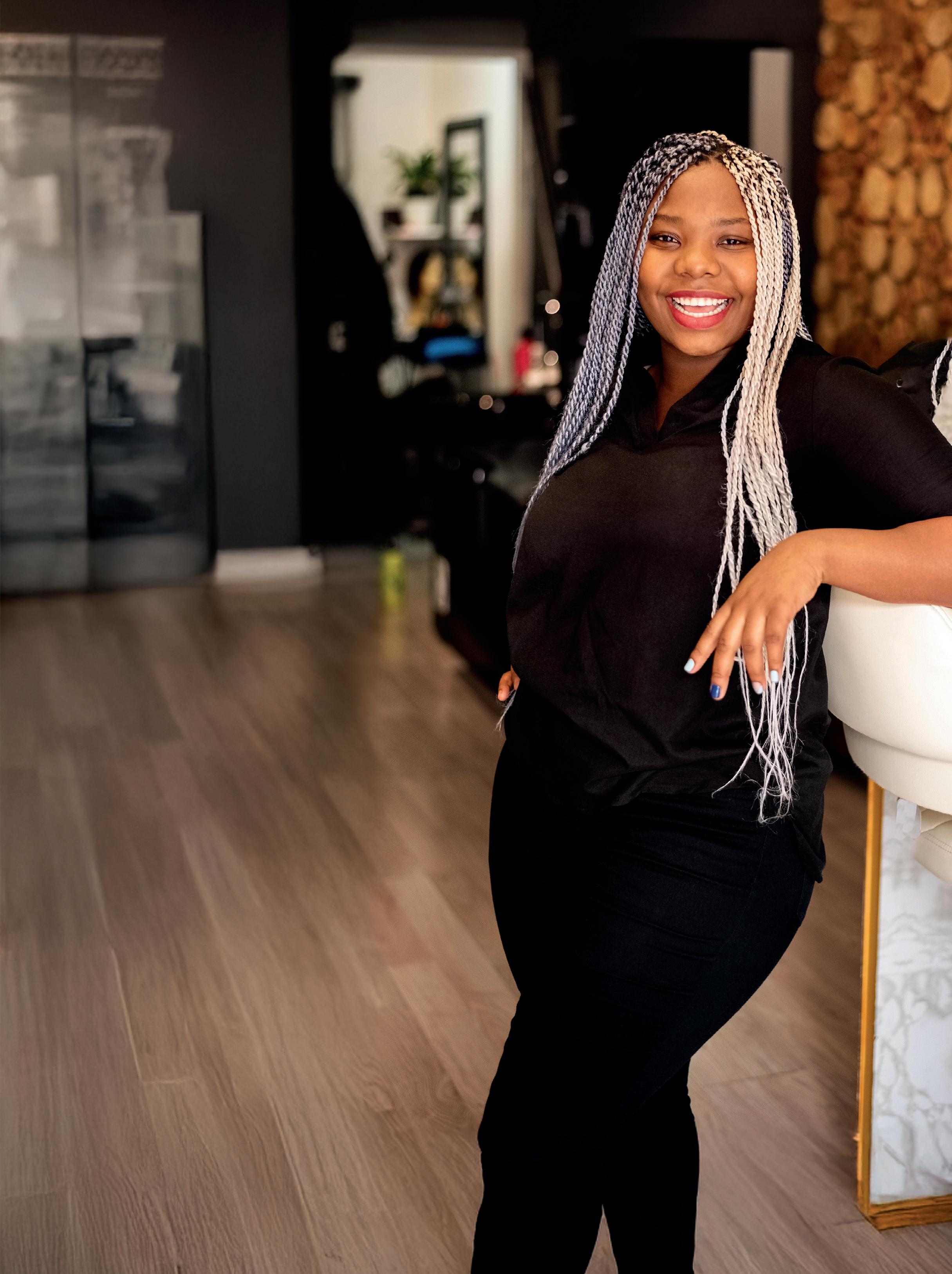
confidence, knowing you’re partnering with businesses that meet high standards and share our commitment to professionalism.
More than just trust – exclusive NHBF Member-only deals
As a valued NHBF Member, you also get access to a range of exclusive offers and discounts from Assured Trade Members. These deals are designed to support your business’s bottom line – helping you save money while sourcing top-quality products and services.





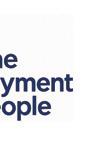




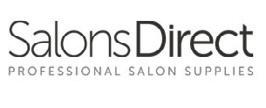





To find an Assured Trade Member and view their exclusive offers, simply scan the QR code below or head to the NHBF website and visit our dedicated page: nhbf.co.uk/trade-membership
You’re already a NHBF Member, so make sure you’re getting the most out of it! Explore the page, connect with trusted suppliers, and start saving now.












What should I do if I think a member of my team is stealing from me?
Rosie Kennedy, employment law adviser at WorkNest, says:
Dealing with misconduct issues as an employer can be tricky to navigate, and if you suspect that an employee may be stealing, you as an employer must carry out certain steps before taking any action.
Allegations like this may be considered gross misconduct, meaning that, if the employee is dismissed, they are not entitled to notice pay – however, they are entitled to a full and fair process. This depends on their start date (if they have less than two years of service) and your policies, so take advice.
Before you start any investigation, you must take all necessary steps to check you have a valid basis on which to do so.
Once you’re sure that theft has been committed, investigate the matter thoroughly and gather relevant evidence that may narrow it down to one employee. This will include:
● Checking any CCTV
● Asking employees to agree to bag searches, ensuring you have a witness present. Check your handbook and contract for your
organisation search procedure and ensure you follow it
● Asking for statements from any employees who may have witnessed any wrongdoing or suspicious behaviour
● Checking and printing any electronic evidence: for example, booking systems, cash registers and stock lists.
This should be done as soon as possible, and without delay.
Once you have carried out sufficient investigations and found evidence to support your suspicions, you will need to approach the suspected employee.
In most cases, the chair of the investigation meeting and the chair of the disciplinary meeting should be different people. This should be factored in when deciding who should manage the investigation stage, although in very small organisations this can be the same person. Reserve a third person outside the process to deal with any appeal.
The investigation meeting should be held in a private location with a note-taker present. Ensure you check your employee handbook and disciplinary policy for any specific procedures you need to follow.


Unless your procedures require you to give advance notice of an investigation, call an ‘ambush’ meeting to avoid alerting the employee. If you notify them, they may take sick leave.
At this meeting, you will put your concerns and evidence to the employee. Ask them to provide you with their own account and ask questions to gather the facts.
It’s important to remember that at this stage no decision on the outcome has been made – the person is still an employee and needs to be able to state their case for consideration. The investigator is not to decide on findings, but merely to establish the facts.
Should you be concerned that the employee poses a risk to
ALLEGATIONS LIKE THIS MAY BE CONSIDERED GROSS MISCONDUCT

the organisation if they remain at work, consider whether it’s appropriate to suspend them.
Employees are paid their full salary during the period of suspension: it is not a disciplinary sanction.
Suspension is a precaution where there are no other measures that could be implemented, and the decision to suspend needs to be considered carefully.
You should consider:
● The information you have gathered
● How serious the situation is
● Whether it’s reasonable to believe the employee is at fault and suspending them is a reasonable step to protect the business and the ongoing investigation – for example, to preserve evidence.
You should also consider if there are alternatives to suspension that you could put in place.
An employee should be informed of the decision, ideally at the end of an investigation meeting. However, you can suspend the employee at any stage, provided that you have reason to believe they are at fault, such as following a search of an employee’s belongings.
The employee should be informed that this is not an indication of guilt, nor a disciplinary sanction, and that they will remain on full pay. This decision should be followed up with a suspension letter that explains the terms of the suspension.
Suspension should be kept under review and be as short as possible.
You should then contact the NHBF Employment Advisory Service on 01244 687 600 for advice about whether the employee should be called to a hearing and how to proceed with that.

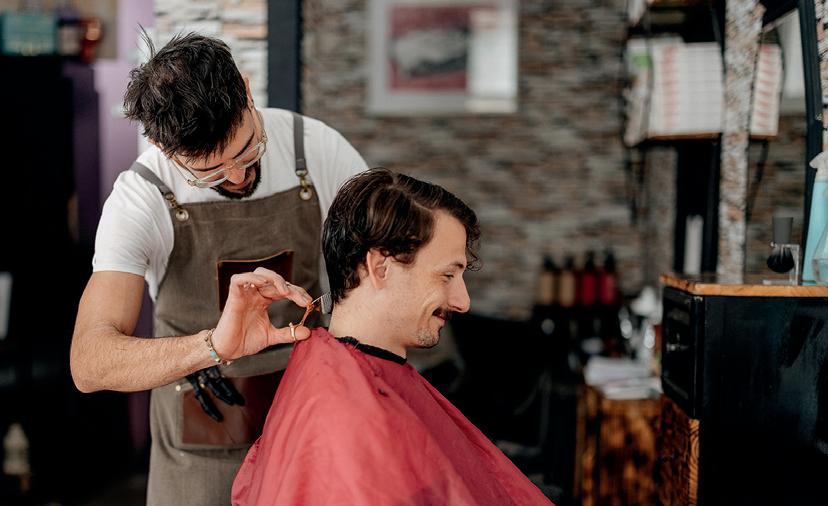
HMRC has published new guidance to help hair and beauty professionals determine their employment status for tax purposes. The user-friendly guide, created with support from the NHBF, is particularly useful for those working in a chair renting model.

Access the guidance by scanning the QR code or visit b.link/employmentstatus-guide










Do you have some expert advice for your fellow hair and beauty business owners that you’d love to share? Or maybe you would like to be interviewed for the magazine?





















We’re looking to add even more NHBF Member experience and expertise to the articles in the magazine. We would love you to come forward if you think you’ve got something to say from a barber, hair, beauty or aesthetics perspective – we want to hear from you all. You would be adding invaluable depth and insight and shaping the magazine’s content direction. Could you help?



If so, please email the editor Hollie Ewers at hollie@ salonfocusmagazine.co.uk with your suggestions or for further information.



From a young apprentice to an award-winning entrepreneur, Laura Bull’s journey is one of resilience, ambition and a determination to succeed and invest in the future.
I didn’t really want to be a hairdresser – I wanted to be a Redcoat at Butlins – but I started a traditional hairdressing apprenticeship and ended up working in a salon for about seven years. If I’m honest, I didn’t enjoy hairdressing at the beginning because I found it quite difficult. But once I decided to specialise in something, and I invested in the Wella Master Colour programme, I developed a new confidence in myself and my abilities. I started my own business in 2010 – CODE Hair Consultants, a master colour expert salon. Since then we’ve been recognised with multiple national and local awards and more than 1200 five-star reviews. I’ve also trained at least 10 apprentices through the salon. I currently have two apprentices and two members of staff. I was fortunate enough to buy the salon building in 2015, which has been a major plus as I now have spaces that I rent.
My favourite thing about being a salon owner is mentoring younger people. I love teaching them how to be a great hairdresser while also giving them life skills and the motivation to succeed.

FOCUS FACTS
Salon name:
CODE Hair Consultants
Location: Oulton
Broad, Suffolk
Established: 2010
Owner: Laura Bull
Member no: 4000976
Web: codehair.co.uk
IG: @lauracodehair @codehairsalon

Our original USP set us apart – there wasn’t anything like it in the area at the time – but 15 years on, the sector has changed and you must evolve. Although we’re still most well known for being a colour expert salon, we’ve adapted our
We like to try and target a ‘perfect’ guest. We want to serve people who are passionate about getting their hair done and who really appreciate good customer service and products. We’re not targeting a particular demographic or age group, but a typical client we want to walk through the door. So we tailor our marketing and social media to appeal to and attract this ‘perfect’ client, and it works.
I see the NHBF as a safety net – if I have a question there’s someone at the end of the phone. I had an issue about three years ago and I called them to ask for help, and they just talked me through what I should do. Even when I don’t need help, I know the NHBF is there in the background, waiting to support me.
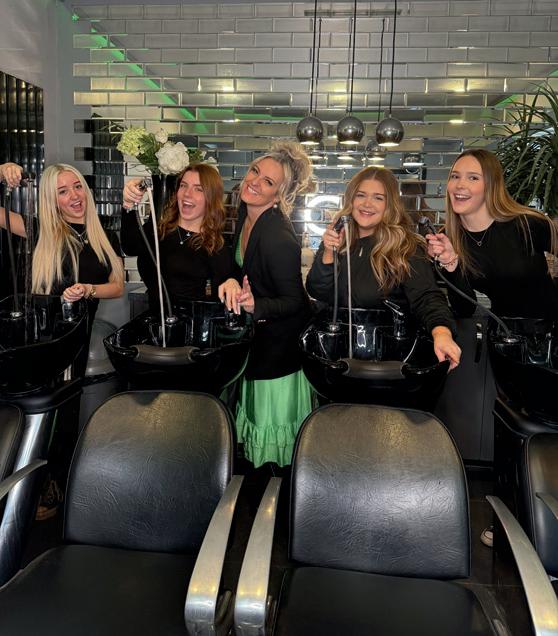

USP to be a more inclusive workspace that deals with clients with diverse issues, both mental and physical. We wanted the salon to be a safe space where staff and clients could be themselves. We have clients with various neurological disorders who we welcome in, and we have created an environment for them to not feel worried about their condition – something we’re really proud of.
My plan is to keep going as we are and to continue training the next generation of hairdressers, inspiring others to chase their dreams, and proving that where you start in life does not determine where you can go.
For me, the key to success is to always stay true to yourself and not be led by what’s going on around you if it doesn’t feel right. In these current times especially, it’s crucial to be savvy and be prepared for the changes ahead to ensure you thrive.

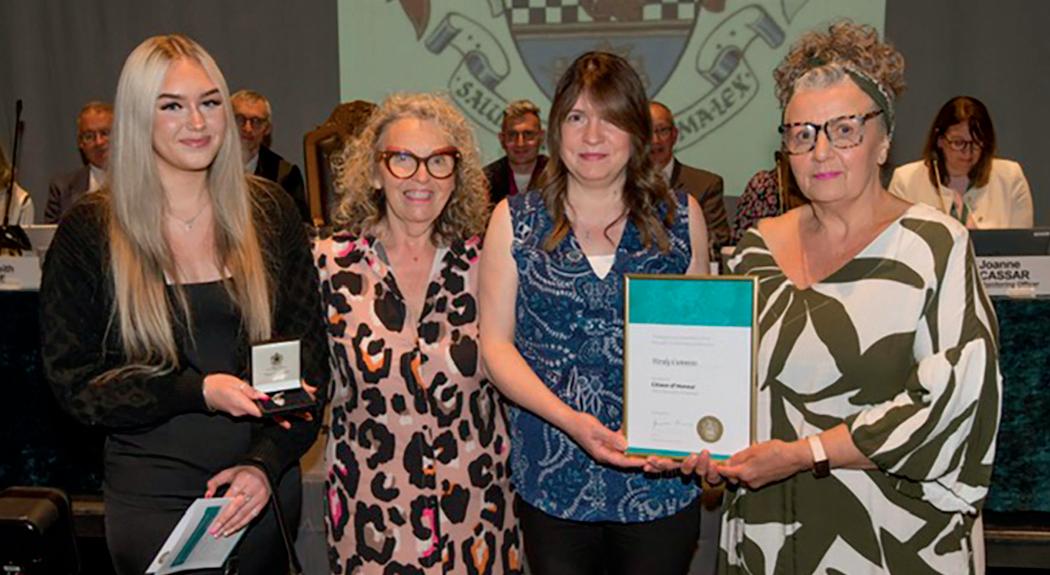
NHBF Member Wendy Cummins (second from left) received a Citizen of Honour Award in May, which recognised the charity events that she and her staff at her salon Quiffys organise in their local community, Boyatt Wood in Eastleigh, Hampshire.
The team was awarded with a certificate and a medal at a civil ceremony along with the entire county council. ‘It was a great surprise, and we were all excited and elated,’ says Wendy.
The functions of the Institute for Apprenticeships and Technical Education (IfATE) have now transferred to Skills England. The new government body will build on the work the IfATE has already done with employers to shape skills training in England.
Skills England has been tasked with tackling the widespread skills shortages across England and a falling number of people participating in apprenticeships.
See more on apprenticeships on page 35.
The NHBF's annual report for 2024 is available to download.




Hairdressing student Mollie Dwyer of Wigan & Leigh College has been crowned Denman’s College Star 2025 for winning its Big Blowout Competition.
Beating more than 650 other entrants with her ‘gorgeous glossy and perfectly balanced loose wave
blow-dry’, Mollie won £1000 cash and a hamper of tools worth £200 for her college department.
This year the competition prizes also extended to the tutors. Victoria Mawson, tutor of the new Denman College Star, won £250, while Julie Carroll of Belfast Met College won £250 for the greatest number of student entries.
Reflecting on the report and the past year – one of the most challenging periods the sector has faced – NHBF chief executive Caroline Larissey said: '2024 was a year of necessary consolidation that has created the green shoots of renewal. The investments we’ve made in people, systems, relationships, and Member services are already showing returns.
'We launched into 2025 with our Survive & Thrive initiative and continued five-year strategy implementation from a position of strength, with clear direction, and with the unwavering commitment to make every day count for our Members and our sector.'

Scan the QR code to download the 2024 report or go to nhbf. co.uk/annual-reports to access the NHBF annual reports from 2018 to 2024.










As this Summer issue of salonfocus goes to press, the NHBF has announced its Top 100 hair and beauty influencers for 2025. This year’s index was collated differently and has been split into two distinct categories: The Top 50 Hair Influencer Index and The Top
50 Beauty Influencer
The final lists were revealed at separate sector events in June. The top 50 hair influencers were announced at HairCon in Manchester on 22 June, while the top 50 beauty influencers were revealed at the Tones of Beauty trade show in London on 30 June.





If you weren’t at the events to witness the reveals of the finalists and winners, go to nhbf.co.uk/ top-100 or follow @nhbfsocial on Instagram to see who made it onto the lists for 2025.
Look out for exclusive interviews with the top influencers in the Autumn issue of salonfocus!


The NHBF’s commitment to long-term business strength is clear in the next phase of the Survive & Thrive initiative.


After a turbulent end to 2024, the hair and beauty sector found itself once again adjusting to a shifting economic landscape. Last year’s Autumn Budget brought rising wage costs, reduced support and increased financial pressure for many business owners across the UK.
In the face of these challenges, the NHBF launched Survive & Thrive – a practical, Memberfocused initiative to help hair and beauty businesses adapt to the new reality. Now, with many businesses having weathered the initial impact, we’ve moved into the ‘building resilience’ phase – a future-focused chapter built on strengthening business foundations, encouraging adaptability and empowering our sector to progress with confidence.
Across the sector, business owners are exploring new ways to adapt and develop. Whether it’s rethinking their USP, introducing new services/treatments/ procedures, going green or refining business goals, it’s the perfect time to tap into the NHBF’s Memberonly resources. From financial planning to marketing strategies and wellbeing tools, your NHBF membership includes a wide range of practical support and expert guidance to help you navigate challenges and drive growth.

For Colin McAndrew, NHBF Member and managing director of Medusa hairdressing salons in Edinburgh, resilience starts with taking ownership. ‘As business owners, we need to take responsibility and focus on what we can control,’ he says. For Colin,

that includes making tough but necessary and proactive decisions, like introducing a price increase and, for the first time ever, an incentive for new clients. Colin emphasises that maintaining an open dialogue with his team about why the state of the sector matters is equally important ‘because it puts the fact that it’s not just about profit into context. Rather, it’s about earning enough to keep doing what we love.’
Colin’s leadership highlights how resilience is built through shared understanding and connection. It’s a great reminder that exchanging ideas, sharing experiences and learning from others in the sector all play a key role.

NHBF Member and Leicester salon group owner Barrie Stephen confirms this, describing the Survive & Thrive event in London as ‘a truly







encouraging day’ that gave him the opportunity to connect with other business owners and learn about the different models being operated in the sector. The experience, he said, was ‘thought-provoking, enjoyable and incredibly positive’. In a challenging economic climate, the event was a powerful reminder that resilience comes from understanding that there are many ways to succeed – and hair and beauty business owners are proving that every day.
As we move forward, the strength of our membership community is more important than ever for both personal and sector-wide resilience. Whether it’s resources, face-toface events or virtual interactions, Members can call upon the NHBF membership team to stay connected.

OUR GOAL IS TO MAKE SURE EVERY HAIR AND BEAUTY BUSINESS HAS WHAT IT NEEDS TO THRIVE IN 2025 AND BEYOND
The building resilience phase builds on the support of Survive & Thrive, shifting the focus towards business sustainability. The NHBF continues to lobby on behalf of the sector, ensuring the realities of running hair and beauty businesses are heard and understood at the highest levels. At the same time, Member-exclusive resources evolve with the changing needs and opportunities of the sector to help businesses stay resilient, responsive and ready for anything.
‘We know our Members are incredibly strong, but no one should have to face these challenges alone,’ says NHBF chief executive Caroline Larissey. ‘Our goal is to make sure every Member’s business has what it needs to thrive in 2025 and beyond.’




Scan the QR code to explore the latest tools and resources in the building resilience phase or visit nhbf.co.uk/ survive-and-thrive
In the more than 80 years since the NHBF was founded, the hair and beauty sector has faced its fair share of challenges – but it has adapted, innovated and thrived. Here’s how.
WORDS ANNA SCOTT
It’s no secret that the hair and beauty sector faces a tricky time. Changes to National Living Wages and National Insurance contributions, rising wage bills, and commercial property, energy and operational costs are all affecting profitability. Government business support schemes are shrinking, competition from freelance, home-based and mobile providers is growing, and recruitment and retention – particularly for skilled positions – is challenging.

1938 Early organising efforts for a hairdressers’ federation.
1939 The start of the Second World War and a focus on practical hairstyles, make-up as a morale booster and resourceful alternatives such as beetroot juice for lip and cheek stain.
‘The sector has staff retention issues amid cost of living pressures, and needs to maintain profitability while meeting rising consumer expectations,’ says NHBF chief executive Caroline Larissey. ‘The shift from traditional employment to self-employment and chair/space/room rental models, skills shortages, apprenticeship challenges and rising freelance culture are changing business dynamics.’
These changes are challenging traditional salons. ‘I know some that have gone out of business because of

1942 Official founding of the National Hairdressers’ Federation (NHF). 1945 – 50s Return to glamour and rise of salon culture. New products such as hairspray emerge. A recession in 1956.




1960s Hair and beauty products become more widely available. Cultural movements and musical icons inspire experimentation with individual styles, such as the Beehive.


1964 The Hairdressers (Registration) Act passes into law, establishing a voluntary UK register for qualified hairdressers.
1970s – 80s Trends shift again with cultural movements. New techniques become available, such as perming and crimping.



Clive Boon transformed his business’ approach to energy management by drawing upon NHBF resources as his foundation alongside the collaborative ‘Energy Aware’ campaign between the NHBF and Ofgem. ‘The NHBF information allowed me to identify and implement practical solutions in my salon right away,’ reflects Clive. ‘There were numerous ways to maximise energy efficiency that supported both the viability and costs of running the business, because when it comes down to it, it’s all about the cost.’
The measures Clive implemented included upgrading to LED lighting, lowering the salon temperature by 1°C, establishing equipment power-down protocols, regular boiler maintenance, appointing staff as ‘energy champions’, and using natural ventilation instead of air conditioning. These changes delivered such impressive results that Clive collaborated with Ofgem and the NHBF to produce a video showcasing these practical initiatives, passing on valuable hints and tips for the benefit of other sector business owners.
this,’ says John Belfield, owner of John Belfield Hairdressing International in Newcastle.
Moving with the times is essential. ‘You’ve got to pay attention to what is happening around you,’ says Clive Boon, owner of Boons Ltd in Retford, which was established by his grandfather in 1926.
‘My grandfather wrote an article for the Daily Express campaigning for registration for hairdressers more than 60 years ago (his campaigning started in 1921 ),’ he explains. ‘And my dad used to get people from Vidal Sassoon and other salons to come and train our staff. We have always tried to evolve in that way.’
But this isn’t the first difficult time the sector has experienced. The NHBF was started in the middle of the Second World War, and since then, multiple recessions, periods of unemployment and the Covid-19 pandemic have affected businesses.

MICHELLE HART
Know your key numbers: ‘Every owner should know the lifetime value of a client and how much they’re willing to spend to attract one.’
Understand and manage capacity: ‘Know how full your diary is and educate your team to care about it too. If you’re running at 60%, there’s opportunity.’
Follow up like a pro: ‘A missed enquiry is missed income. Create a simple, consistent follow-up process so no opportunity slips through the net.’
Analyse objectively: ‘Take a step back and honestly assess your business. Understanding where you truly stand is essential before you can move forward effectively.’
Maximise your potential: ‘Every business has untapped opportunities – whether it’s expanding services or refining your client experience. Identify what makes your business special and build on those foundations.’
Focus on your strengths: ‘Rather than trying to be everything to everyone, concentrate on what you do exceptionally well. Your distinctive skills are what set you apart in a crowded marketplace – these are the areas worth investing in and promoting.’
Adapt with purpose: ‘Change should be strategic – when implementing new approaches, whether sustainability measures or service innovations, ensure they align with your business identity and genuinely enhance what you offer clients.’
Make-up becomes more diverse. Recessions in the mid-1970s and early 1980s affect employment and spending power. The Youth Training Scheme launches in the early 1980s. Nationally recognised standards emerge in the late 1980s with National Vocational Qualifications and Scottish Vocational Qualifications.

1990s and 2000s Technological and chemical advances grow in hair styling and colouring. Recessions occur in the early 1990s and in 2008, affecting interest rates, employment and discretionary spending power. 1998 Working Time Regulations come in, setting a maximum average working week of 48 hours. The NHF modernises its Member services.


2010s Reflecting the broader industry scope, the National Hair & Beauty Federation is born. Social media platforms drive trends, creates influencers and provides direct access to tutorials. Online shopping transforms how people buy hair and beauty products. AI enables skin

Since then, training, education and qualifications have emerged and evolved, with specialised certifications for advanced techniques, continuous professional development frameworks and industry-specific management qualifications all now available. Trainer-specific qualifications raise educational standards and business skills are a major part of education. ‘As a sector, we have always invested in apprenticeships, education and training,’ says Caroline. ‘We haven’t just developed skills – we’ve sculpted the very future of hair and beauty, transforming individual potential into excellence.’
The focus on health, safety and hygiene standards and sustainability has also grown. ‘Clients are increasingly seeking sustainability, wellness and bespoke experiences,’ says salon business coach Michelle Hart. ‘Businesses that embrace clean products, organic colour and holistic solutions will stand out.’
Techniques, services, treatments and procedures have evolved – not least because hair and beauty professionals are so creative. ‘We used to touch up roots with only one all-over hair colour,’ notes Fiona Johnston, NHBF Board member and owner of Trigg Hair
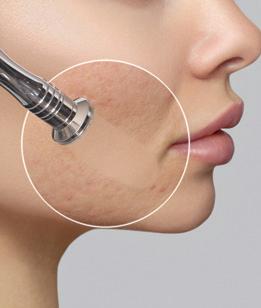
analysis, virtual try-ons and personalised product recommendations. Sustainable practices and considerations around ethics emerge. In-salon treatments such as microdermabrasion advance, while DIY and at-home treatments increase.

‘In the late 1950s and early 60s, barbershops did shaves and short back and sides on unwashed hair,’ recalls John Belfield, owner of John Belfield Hairdressing International in Newcastle. ‘Fridays were busy with men finishing work in industry and wanting their weekly wet shave after they’d been in the pub. For the ladies it was a shampoo and set to last the week.‘
John has been an NHBF Member for more than 50 years and has seen the federation go from having branches in every town and city as an employers’ organisation to offering ‘a more flexible
Studio in Edinburgh. ‘Then highlights became a service, through a cap or with foil, and that has now evolved into freehand balayage services.’
It’s not just trends that change. ‘The hair products – shampoos, treatments, colours – have improved massively,’ Clive adds. ‘You do quicker techniques with them, and the standard of the bleaching and the condition of the hair is a lot better.’
The digital revolution is one of the biggest long-term shifts. ‘It has changed how we attract and interact with clients – and widened the competition,’ says Michelle. But what has kept the industry so strong is its deep-rooted connection to people’s wellbeing and desire to look and feel good.

2016 Brexit leads to labour shortages, increased costs and product-sourcing problems.
2020 The Covid-19 pandemic and multiple lockdowns close hair and beauty businesses for months. Practices and consumer habits change on reopening. Throughout the pandemic, the NHBF is consistent with reliable, award-winning advice for the sector.
2025 NHBF launches the Survive & Thrive initiative to address economic challenges.
membership to all parts of the sector, including beauty, employed and self-employed’.
His business has adapted and thrived over the years, thanks to ‘a close family ethos focusing on apprenticeships and long-term employment through developing loyalty within a team’. He adds: ‘We believe in providing National Vocational Qualifications in-house (not hairdressing professional apprenticeships) – this way we maintain a standard and loyalty, and we believe in investing in our staff. We also have our own range of hair products.’
Why are people working in the sector so resilient? ‘We all love hairdressing! It is a way of life.’
‘Clients will always need human touch, conversation and confidence-boosting care – and professionals in this space are uniquely placed to provide that,’ says Michelle. ‘Our ability to adapt, innovate and stay relevant is what continues to carry us forward.’
And the NHBF will continue to support Members. ‘The NHBF doesn’t just stand behind you – we’re the invisible scaffolding that helps you build higher, the tailwind that turns headwinds into momentum, and the safety net that transforms risks into opportunities,’ says Caroline. ‘We’re not just supporting your business; we’re amplifying your creative vision and professional ambitions through every economic season and industry evolution.’
● NHBF Business Hub: nhbf.co.uk/ supporting-your-business
● NHBF Survive & Thrive –Strong foundations: nhbf.co.uk/ strong-foundations

● NHBF Survive & Thrive –Implementing change: nhbf.co.uk/ implementing-change
















It has been a rocky road to navigate since Labour came to power 12 months ago. Former NHBF head of policy and public affairs Rosina Robson considers the party’s impact on the hair and beauty sector and what the next 12 months might look like.














It’s been a tough year for the sector under the new Labour government. Despite the initial talk of missions and growth, the reality has been quite the reverse. The NHBF’s Straightening out the costs report (see Resources) models the impact of the Autumn 2024 Budget on the sector – £139m overall – showing what a massive intervention the announcement was. In an already challenging economic climate, elements such as the Employment Rights Bill will bring in more hurdles for businesses to navigate, such as day-one rights and changes to statutory sick pay.
In the face of such pressures, and with employment levels and apprenticeship starts declining, the sector is somehow managing to navigate through. We are seeing examples of how sector businesses continue to adapt and be resilient (see Case studies) – something the NHBF is keen to continue to help Members to do.
























1

The NHBF’s role: How have we have influenced policy?
Manifesto: The NHBF was the only sector organisation that set out what it wanted from the new government on behalf of its Members through our manifesto, published before the general election (see Delivering on the NHBF Manifesto: Where are we?).
2
3
















Increase in Employment
Allowance: We pushed for this and we got it. The government also provided further business rates relief in England, albeit at a lower rate, with lower rates for retail promised in the longer term through further reform.
4 Straightening out the costs report: This was sent to all 650 MPs and highlighted issues such as VAT reform and apprenticeship incentives for employers.
Evidence-based lobbying: Our State of the Industry surveys are important for backing up our campaigning and lobbying efforts. The results provide the latest insights on what’s happening in the sector and, importantly, a time series so that government can appreciate trends over time. Ministers and government officials say that they really value this.
‘Can I suggest you keep getting NHBF Members to hammer the point home with MPs up and down the country? There is nothing like a salon visit and the chance to talk to some of your brilliant local hairdressers to change an MP’s mind.’


5MP visits: Salon, barbershop or clinic visits with MPs are proving powerful. Putting MPs and decision-makers in direct contact with business owners helps to power home the message about the sector’s importance to the economy, high streets, youth employment and wellbeing. For example, a visit with Lilian Greenwood MP in Nottingham showed the immense pressure that businesses are under, while a meeting with Luke Taylor MP in London demonstrated more clearly the issues around disguised employment. We have further meetings and visits with Members planned.
Delivering on the NHBF manifesto:Where are we?



























ys. Ther e e maay y be e y for bususinnessse s s alons s at t a lo l ca c l hav a e to see e sinng wa w gees in n ry y diffifficult to re lo l bbbying n mmmissiion on deence, e an a d es e s e




The NHBF manifesto 2024 asked for the following, and here’s how we’re getting on: VAT reform: This is proving tricky, as it’s a major source of income for the government, but they are ‘keeping it under review’. We’ll continue to campaign for a reduction in VAT along with other proposals. Business rates reform: We submitted a paper to HM Treasury based on feedback from the Straightening out the costs report and State of the





lanne n d hi h ghhand n the he egy y ma m ke kes s reetail l or r but we’ll l fluenc n e





neess s ed d laateer r















neerg r y: y We flueuenc n e the or r Ofggem e , whic i h he e reggul u atioon n of niies – parti t cuula l rl r y to r




Industry surveys. Th some flexibility for businesses with multiple salons at a local level, but we’ll have to see. Restraint on rising wages in 2026: This is very diffi secure, but we’re lobbying the Low Pay Commission again with evidence, regional events and Members’ stories. High-street investment: The government has stepped back from its planned highstreet strategy, and the industrial strategy makes no mention of retail or personal care, but we’ll continue to influence the small business strategy expected later in the year. Support on energy: continue to influence the energy regulator Ofgem, which has improved the regulation of energy companies – particularly when it comes to smaller businesses. We have also collaborated and launched an energy saving campaign: nhbf.co.uk/energy-aware Crackdown on tax-evading businesses: The government has committed to more resourcing and enforcement in this space.







hav a e al a so s nd d lau a ncched d ng cammpa p iggn: n erg r yy-awwar a e n taxx-eeva v di d ng
The goverrnmnmennt t to o mor o e enfoorrcecemement t











beauty business owners at the highest levels of government. Your resilience through previous challenges has prepared you for whatever comes next. Stay informed, keep adapting your business strategy, and take comfort knowing that your collective voice is being powerfully amplified through dedicated lobbying efforts. Together, the sector has overcome countless hurdles before – this time will be no different.’






After the numerous challenges faced by the sector during the past five years, it’s amazing to see how some Members are showing resilience and adapting.
Sophie Bullivant owns Colour Me Sophie B in Solihull. She shares how the last year has affected her: ‘I’ve been affected most regarding apprentices.
Owner of Brow Envy beauty salon in Plymouth, Melanie Hopwood, shares her story:
THE MARGIN BETWEEN PROFIT AND SUSTAINABILITY IS SHRINKING FAST, SO WE’VE HAD TO ADAPT, REACT, AND MAKE PROACTIVE CHANGES

I can’t afford to employ my Level 3 apprentice, who qualifies this year, as a full-time stylist because of the National Minimum Wage and National Insurance changes. I’m navigating this by offering her a few days and then building up to full time as she gains clients. It’s sad and short-sighted that the government is basically stopping employers offering careers and training because of these policies. We have had to increase prices and set stronger budgets at the back-end of the business to manage the rise in employment costs. However, we are also focusing on value and experience for our clientele and, along with social media, we’re using “community” to show our strength and resilience by hosting a ladies’ night for 180 girls for a cancer charity.

‘I feel business owners need to focus on the new and exciting positives. There’s so much being shared about how our industry is failing, but not much on how salons are successfully navigating it. Like Covid, this is just the next hurdle and it’s a case of re-setting your sails and doubling down.’
‘The margin between profit and sustainability is shrinking fast, so we’ve had to adapt, react and make proactive changes, such as taking a fresh, strategic look at every treatment we offer – if something isn’t profitable, we’re adapting or phasing it out, ensuring the overall value and time of all appointments directly contribute to the business’s performance.
‘We’re reviewing our loyalty card scheme. While it’s popular with clients, too much time is being lost and it’s eating into our profits. We’re exploring new reward structures that continue to offer value to clients, ensuring their experience remains exceptional.
‘We’re offering curated service bundles that increase average spend while providing perceived value through bespoke treatment packages that are not on our advertised treatment menu.
‘Overall, we’re having to be sharper, leaner and more strategic than ever before. But we’re seeing early signs of improvement – we’re booking more high-margin treatments and we’re not giving away as much through the loyalty scheme. It’s not just about surviving, it’s about evolving.’

Apprenticeship Levy funding redistribution and flexi-apprenticeships: We have submitted proposals to Skills England and the Department for Education, which we’re discussing with them. Modernised careers advice: We have a positive partnership with Unifrog and are putting out advice on online platforms that are accessed by school pupils across the country. Social prescribing: After talks with MPs, we are continuing to gather evidence and information, including discussions with the University of Sheffield. Aesthetics: We continue to work in collaboration with sector partners as steps to regulation in England and Scotland are considered. Green incentives: We continue to push for these to support investment in renewable forms of energy.
What’s next?
● The NHBF is lobbying the government and the Low Pay Commission on 2026 wage rates.
● The Treasury will announce its next steps on plans for business rates reform, and may offer further support to high street businesses.
● A King’s Speech of revised parliamentary bills will come in the summer, which may affect the sector.
● The main event this year will be the Autumn 2025 Budget in October or November. The risk is that this will include further tax rises if the economic environment doesn’t improve and trade tariffs cause a recession.

● The NHBF will continue to communicate with ministers and lobby in parliament to make your voice heard.


Hairdressing legend Errol Douglas MBE explains how he has built a resilient and relevant business in changing times – here, he shares his pointers.
WORDS ERROL DOUGLAS MBE

There’s no sugar-coating it: right now, the high street is a tough place to be. We’re facing a perfect storm of rising operational costs, shifting consumer behaviour and ongoing industry fragmentation. Bills are unpredictable. Stock prices are high. Footfall is inconsistent. And with more stylists going freelance, it’s getting harder to keep talented people inside the salon. But here’s the thing – resilience in business doesn’t mean pretending the storm isn’t there. It means learning to sail in it.
The past few years – and yes, the pandemic was the trigger – have fundamentally reshaped how people move through the world. My salon is in the heart of London. People used to pop into town for a blow-dry, a trim or a coffee, or to visit the butcher on my street. Now many of them work from home and that spontaneity has gone. You can’t fight that by standing still. You pivot.
We adapted by extending our hours – we’re now open seven days a week. In our other location in a hotel, we stay open until 9pm. That flexibility has helped us retain business from clients with new working habits and expectations. Yes, it costs more in staffing and logistics, but it’s allowed us to meet clients where they are.
This is what the best in the industry do: we don’t pause, we pivot. We identify what’s changed and move with it – or better yet, ahead of it.
I’ve never believed in stagnation. From day one, my philosophy has always been about reinvention and relevance. That means always watching, learning and being prepared to shift direction.
It’s why I continue to invest heavily in our apprentices and our team – loyalty and legacy matter, but so does training them to think and work at a world-class level. The same goes for our client experience: it’s not just about hair, it’s about the service, the atmosphere, the brand.



With his avant-garde session styling, Errol has been cutting a dash in the sector for decades.


We don’t do ‘just good enough’. I have three receptionists, 10 juniors and a restaurant in the salon. Yes – a restaurant. You can have brunch, lunch or high tea while you’re in the chair. Every gown is laundered daily. Our clients know they’re getting something special, something consistent, something luxurious.
And when costs go up – stock, PAYE, national insurance, wages – we don’t pass it all on. We remain strategic with pricing. I’m in the premium space and I know our value, but you can’t price yourself out of your audience. You have to be smart. You have to watch your margins without compromising your brand identity. We only put up our prices when we really need to.
One thing I’ve always embraced is the power of diversification. When people ask how we’ve stayed relevant, I point to the fact that we’re not afraid to innovate. We’re always on the lookout for new partnerships, like our collaboration with luxury perfume house Parfums de Marly – joint events, shared clientele, cross-promotion. Or the fact that we’ve become part of Golden Keys, a prestigious concierge network that opens doors to London’s top-tier hotel guests and locals alike.
We’re also launching new services, like a Glowwa Collagen boost add-on – because innovation doesn’t always mean reinventing the wheel. Sometimes it’s about adding value in unexpected ways.
THIS IS WHAT THE BEST IN THE INDUSTRY DO: WE DON’T PAUSE, WE PIVOT
Retail is another pillar. We’ve never discounted, and yet Kérastase, K18 and Moroccanoil fly off our shelves. That’s about brand alignment and understanding what your clients value – and delivering it without compromise.
Our brand has always stood for excellence and inclusivity. We cater to all hair types – Afro, Asian, Arabic and European – and our team reflects that. Between us, we speak 15 languages. That’s not just a statistic, it’s a reflection of who we are and who we serve. We don’t label ourselves by texture or ethnicity; we’re defined by



our technical skill, our creativity and our commitment to contemporary luxury. That is why clients trust us, and why the brand continues to resonate across generations.
Resilience isn’t something you switch on during tough times. It’s a mindset. It’s built into how you train your team, how you treat your clients, how you scout for opportunity and how you stay relentlessly committed to quality –whatever the world throws at you.
We’ve won awards from Marie Claire to the London Lifestyle Awards, and that recognition is great. But what matters more is that people walk through our doors every day and leave feeling better, stronger and seen.
To thrive in this industry, you’ve got to be adaptable. You’ve got to be inventive. You’ve got to be relentless. Those who succeed aren’t those who wait for better conditions – they’re the ones who build stronger ships.


Continuing with the series on quality, standards and education insight, we discuss the urgent crisis facing hairdressing apprenticeships in England and the support available for businesses.
WORDS KATIE SMITH















The num the lev standa profes
he number of people starting the level 2 (apprenticeship) standards for hairdressing professional in England has almost halved from 5650 in 2020/21 to 2990 in 2024/25, according to the Department for Education. For the advanced and creative hair professional standards, the number dropped from 810 to 450 during the same period.








Advanced and creative hair professional standards have been among the hardest hit, with just £5000 funding per apprentice, making it unsustainable for training providers. In comparison, the level 2 qualification gets £11,000 in funding per apprentice. This has contributed to the Institute for Apprenticeships and Technical Education, whose functions are being transferred to Skills England, putting level 3 development on hold.

2020/2 accord Edu and cr standards, the num to 450 during the s Advanced and cr standards have bee hit, with just £500 apprentice, making providers 2 gets apprentice. This ha Institute for Appren Education, whose transferred to Skill on ho recent p business costs and putting h



● In 2017/18 there were 13,070 hair, beauty and barbering apprentice starts. In 2023/24 there were only 7350 – a total reduction of 44%.
● Of the 2017/18 total, 10,980 were combined hairdressing starts. There were just 6350 such starts in 2023/24 – a 42% reduction.

Indeed, recent policy changes, rising business costs and funding shortfalls are putting England’s hairdressing training


WHAT SEPARATES APPRENTICESHIPS FROM OTHER FORMS OF TRAINING IS THE EXPERIENCE OF BEING WITHIN THE SALON, SEEING HOW OTHER HAIRDRESSERS WORK
pipeline at risk. According to the NHBF’s report on the effect of the 2024 Autumn Budget on the hair and beauty sector, businesses expect to cut an average of 2.7 full-time equivalent staff and one apprentice.
The report also found that almost three quarters (72%) of businesses surveyed will be forced to increase prices as a result of the Budget measures. Combine this with a shift towards self-employment models and there’s never been a more crucial time to take action.
So, what’s the answer? The NHBF is continuing to support businesses with its Survive & Thrive initiative (see Resources), and is calling on the government to take immediate steps to prevent a further decline. These include:
● Urgent increase in level 3 funding to match level 2 funding
● Apprenticeship levy reform –ensuring unspent levy funds support hairdressing apprenticeships
● Targeted financial support

– a £3000+ incentive per apprentice to ease training costs
● Accelerated apprenticeship programmes – streamlined pathways for faster qualification without compromising quality
● Flexible apprenticeship models
– adapting to the sector’s increasing self-employment landscape
● Young Apprenticeship Schemes
– encouraging school leavers to enter the profession
● VAT reform – levelling the playing field between employers and self-employed stylists
● Business rates relief – ongoing support for the sector following Covid 19.
Liverpool-based hair salon and training provider Collinge & Co has a long history of championing apprenticeships – right back to the 1950s. ‘It’s part of our DNA,’ says managing director Charlie Collinge. The company has capacity for 64 apprentices each year. ‘What separates apprenticeships from

Holly Molden (left) is currently working towards her level 3 advanced and creative hair professional qualification at Collinge & Co. ‘It’s such a creative environment and it’s a job that I love doing,’ she says.
After completing her level 2 training, Holly says, ’there was not a single doubt in my head that I wanted to do my level 3 training. If someone comes in with a problem, it’s about knowing how to fix it. People think of it as an optional extra, but it shouldn’t be – if you want to be the best hairdresser then you have to have your third year.’
Holly has seen her confidence skyrocket in her third year. ‘You’re running your own column – you’ve got your own clients and you’re learning your timings and how it all works.
‘Your third year takes you to a different level. My consultation skills from the second year compared to the third year are so different. If I went and did my own thing after the second year, I don’t think I would be as good a hairdresser.’
Meanwhile, Chloe Steel is training for her level 2 hairdressing professional at Collinge & Co while working at Retro. ‘The training is amazing and it’s boosted my confidence at work and socially,’ she says. ‘I’d recommend the apprenticeship route to anyone.’
Despite the uncertainty around level 3 training, Chloe is hoping this will be the next step in her hairdressing career. ‘The more you know, the more you benefit,’ she says. ‘You can build your clients and offer more services.’
other forms of training is the experience of being within the salon, seeing how other hairdressers work and having the opportunity to work with paying clients,’ Charlie says.
‘Apprentices are valuable members of the team and they add value to the efficient running of salons. I see how 16-year-olds develop in confidence to become almost completely different people after completing their advanced apprenticeships’ (see Case study: Championing creativity).
Over the past 20 years, however, Collinge & Co has halved its number of apprentices. It had to close a salon earlier this year, with
the two apprentices there being moved to another salon.
‘Within our salons, we have slightly fewer employment opportunities for apprentices this year as a result, but as a training provider we’ll be offering the same number of apprenticeships as we did last year,’ says Charlie.
The company will also take on 20 level 3 apprentices this year.
‘However, our fear is that there are fewer employers each year,’ he says. ‘Our challenge as a training provider is finding employment opportunities for people. Plenty of people want to be hairdressers but there are fewer apprenticeship opportunities.
‘Ironically, the apprenticeship has never been better,’ he adds. ‘Introducing the end-point assessments has been a good thing – it’s raised standards. Having the distinction grade helps us push ourselves and the students and gives them something to aim for.’

The NHBF has also been working with careers platform Unifrog since June last year to promote jobs in the hair and beauty sector, particularly where there are skills shortages. Unifrog helps students compare apprenticeships, further education and university courses in the UK, and lists current vacancies.
Cathy Weston, NHBF director of quality and standards, says: ‘The NHBF is the only trade organisation to work with Unifrog, having produced a range of career library profiles and videos showcasing professionals, including our NHBF Members, in their everyday jobs.’ This includes what a role looks like and what the successful candidate would be doing in a salon on a day-to-day basis, she explains. ‘It gives people a true reflection of what working in the sector looks like,’ Cathy adds.
APPRENTICES ARE VALUABLE MEMBERS OF THE TEAM AND THEY ADD VALUE TO THE EFFICIENT RUNNING OF SALONS

● NHBF Survive & Thrive initiative: nhbf.co.uk/ survive-and-thrive
● Find out more about Unifrog: unifrog.org

We speak to sector professionals for advice on how to successfully scale up your hair or beauty business.
After growing up working for their dad, a barber, Darran and Leigh Gould decided to strike out on their own in 2013, opening their first barbershop in King’s Lynn. Since then, Gould Barbers has grown to be the UK’s largest barbering brand, with 46 more shops in Tesco stores up and down the country.
‘Our first barbers did 100 haircuts in the first week,’ says Darran. ‘When we opened our first Tesco shop in 2016, we did 147 haircuts on the first day.’ It wasn’t long before Tesco offered the brothers a partnership.
The key to their success is focusing on what the client wants, says Darran.
‘If you open a cool, quirky shop in a small West Midlands town, people can feel too intimidated to go in. Our shops have a distinct look but they’re inviting to all demographics, including senior citizens and mums with their children. It’s the same reason we’re open until 7pm and our busiest trading day is Sunday, because that’s when our clients want to get their hair cut.’
It’s crucial to build up a client base before thinking of expanding, and to

OUR SHOPS HAVE A DISTINCT LOOK BUT ARE INVITING TO EVERYONE
wait at least five years to become established, he adds. And when it comes to choosing the location of your next shop, research is everything.
‘I look at how many barbershops there are nearby, how busy they are and what they’re charging,’ he says. ‘Then I’ll look at the population and the demographic. It could be a cracking location, but if the competition is too fierce you’re flogging a dead horse.’
Creating a clear career path is also important for retaining talent while growing your own workforce, Darran continues. ‘We opened our academy in 2021 to train our apprentices to become
OUR PROFESSIONAL PANEL



Digby: NHBF Board member and founder of Feathers Collective, a group of six salons in Essex, and distribution and education company Passion4hair



Jasmine Griffin: Business expert and founder of Londonbased beauty marketing agency The Beauty of Marketing
Barrie Stephen: Owner of awardwinning Leicestershire salon group
Barrie Stephen
barbers. They can then become senior barbers and, if they show real growth potential, we’ll look for a shop for them to manage. We have 300 barbers, 47 senior barbers and 100 apprentices, as well as four area managers – and they all started as barbers.’
To the next level
We speak to more business specialists to find out what to consider when scaling up.
You have the capacity
Measure how much time, brainspace and energy you have before branching out, says Debbie. ‘If you can’t take a four-week holiday without a disaster happening, your business is not ready. Focus on building the team in the current
When scaling your business, there are two models open to you: independent expansion or becoming a franchise.
While an independent business will be fully owned and operated by you, a franchise allows other people to pay you fees to run a business under your trading name and brand. The franchisee will usually buy a licence from you to do this, with a contract in place that sets strict rules for how the business will run. (We’ll have more on franchises in a future issue of salonfocus.)

business so it works when you’re busy in the new location.’
You’re making a profit
Ensure your business has healthy finances before sinking more money into expansion. ‘Make sure your first salon is profitable,’ says Barrie. ‘One of the main reasons businesses fail is poor cashflow, so know your numbers and have a strong business plan, because you’ll need to break even quickly.’
Effective
With more than one salon to run, you must have good systems and processes in place to keep your business running economically. ‘There are so many tools and platforms that can make your workload more efficient,’ says Jasmine. ‘Automated booking systems and finance software can make a big difference – do your research to find the best one for your business.’
‘More businesses fail because they run out of cash rather than ideas,’ says Debbie. ‘Focus on financial forecasting and ensure you have some working capital to finance your new business. That doesn’t have to be a bank loan – you can consider peer-to-peer lending or crowd-funding, and some charities and local authorities offer business grants.’
Focus on marketing: Keep your online and social media presence up to date with engaging content that reflects your brand. Offering discounts and rewards can help to retain old clients as well as attract new ones.
Communicate: Scaling up will put pressure on your time and energy. Keep your team and your clients on board with regular, clear communication.
Invest in your team: Giving people education and training will help to build a positive working culture while maintaining high standards.
Avoid tough decisions: Closely monitor your business’s financial performance and client feedback, and be prepared to make tough decisions quickly.
✘✘Neglect your first salon: It’s easy to become distracted by your latest venture. Ensure you split your time and focus equally, so all sites can strive.
✘
Overstretch yourself: If it feels like you’re taking on too much, you probably are. Build a strong, collaborative team and monitor your cashflow to stay on track.
IF YOU CAN’T TAKE A FOUR-WEEK HOLIDAY WITHOUT A DISASTER HAPPENING,
A successful salon or barbershop needs good people. ‘It all starts with your team,’ says Barrie. ‘We spent a lot of time and effort developing our team by focusing on culture and education. If your team is not engaged and living and breathing the brand, they’re not the right people for your business.’
Choose your location
Think carefully about where to open your next business, using the information at your fingertips to pinpoint untapped markets. Debbie says: ‘You have existing clients you can survey and a database of client information. In my first salon, I noticed that 20% of my clients were travelling from the next town so I opened my second salon there, knowing I instantly had a client base.’
Have a clear vision
Capitalise on what makes your business unique, says Jasmine. ‘By offering more bespoke services or focusing on your niche specialism, you can strengthen your position in the market and expand quicker. There are so many new technologies, it’s easy to get “shiny object syndrome”, but it’s best to think about what you want to be known for, rather than choosing the next big thing.’
When you have more than one site, it’s important to provide a consistent service.
‘A strong brand isn’t just a logo,’ says Barrie. ‘It’s about the experience you provide to your clients. It doesn’t matter which one of my salons you go into you, they all feel and smell the same. Focus on building a culture through education and strong systems and you’ll build a brand your clients can trust.’

● NHBF blog – How to use marketing effectively: nhbf.co.uk/marketing-effectively
● NHBF blog – Prices, retail and profits in your salon or barbershop: nhbf.co.uk/prices-retail-profits
Retirement might seem like a lifetime away, but planning for the future should be a priority.
WORDS KAYE MCINTOSH
Gone are the days when anyone could rely on the state pension for their future – unless you fancy living on less than £170 a week (at current levels). And that’s only if you’ve paid decades of full National Insurance contributions – you’ll need 35 years of doing so, if you started work after 6 April 2016. Employees are now automatically enrolled in company pension schemes. But two-thirds of people in the beauty sector, and six in 10 hairdressers and barbers, are self-employed.
NHBF director of membership Tina Beaumont-Goddard says that’s changing the landscape. ‘The shift towards more self-employment is likely to have had an impact on pension planning, particularly as fewer self-employed individuals are actively saving for retirement. This trend is likely to raise concerns about the long-term financial security of this demographic, potentially leading to increased reliance on the state pension in retirement.
‘Even for those who do save into a pension, their contributions are often lower than those of employees. Self-employed individuals often

experience more volatile incomes, which can lead to inconsistent pension contributions.’
So what steps can you take now to secure your future?
Craig Hubert, managing director of hair product company Four Reasons UK, says: ‘I used to think I could worry about pensions later. But in our sector, we can’t assume we’ll keep up the long hours on our feet forever.
‘The earlier you start setting money aside, the more time your savings have to grow. Thanks to compound interest – earning interest on your interest

There are lots of misconceptions about pensions:
Pensions are too complicated to understand There’s plenty of advice to help you to get to grips with your savings. Check out government sites such as Money Helper or Pension Wise if you are over 50. See Resources.
I’m too young to start worrying
The sooner you start, the bigger the pot you’ll build up. Compound interest – earning interest on top of the interest you’ve already earned – can help your savings grow dramatically. I’ve left it too late
‘It’s never too late – you can always do something,’ says Becci Sutcliffe, a financial planner with Quilter financial advisers. The later you leave it the less chance you have to build up big savings, but the time to start is now.
I don’t need to worry because I’ve got investments
Any savings are good, but pensions give you tax relief – the government effectively contributes to your pension – and long-term security. Your money’s locked away until you retire so you’re not tempted to dip into it.
I can’t afford to contribute to a pension
Any regular payments, no matter how small, will make a difference to your long-term future. Craig recommends: ‘Pick a day where you add one extra client that you wouldn’t normally do – that’s your pension haircut. Put that £30-£100 into a separate account that pays into your pension each month.’










Melanie and John McBreen own Changes, a chain of six salons in Milton Keynes. ‘We have both had pensions since we started in the workplace – I always understood a pension to be a tax-efficient way of saving for the future,’ says Melanie. They run a scheme for their staff via Nest, the workplace pension scheme set up by the government





Can’t afford a you have some for a rainy Craig says: someone offered you an investment with a 25% return, take it – that’s effectively what basicrate tax relief is.





‘Now, aged 50, I’m not ready to
‘I remember when I first started my pension putting my retirement age as 50 and the form was handed back to me with “think again’’,’ says Melanie. ‘Age 50 was unrealistic as the company was paying in £30 a week, which I was matching. Even in 1997, it would have not accumulated enough for a comfortable retirement. to retire. I have experience and expertise and lots to give back to the sector. We have continued with pension payments to secure our future outside hairdressing.’



taxpayers can claim even more.’ Tax relief means that to get £100 in your pension, you pay £80 – the government adds £20 for you.


– even small significantly.’ Craig isn’t a financial adviser, but he’s keen to highlight the importance of pensions to everyone in the sector.
– even small contributions can grow nancial from age 20 could grow into around
Government advice site moneyhelper.org.uk estimates that contributing £200 a month age 20 £316,000 by age 65.


‘A workplace pension is a nobrainer,’ says Craig. You get


contributions from your employer – at least 3% of your salary – and the government on top of your own payments
All employers must offer a workplace pension scheme by law, and you are automatically included (auto-enrolment) unless you opt out. Craig says not paying into a scheme is like ‘turning down a rise in salary’
Melanie McBreen, owner of salons in Milton says: ‘Start small – it can be as your situation husband John started paying £10 a week 40 years ago and that small has amassed a

good workplace scheme is like ord a pension? Hopefully you have some savings for a rainy day. Craig says: ‘If someone off investment with a guaranteed 25% return, you’d take it ectively what basicrate tax relief is. Higher-rate taxpayers can claim even more.’ Tax relief means that to get £100 in your pension, you only pay £80 – the government adds £20 for you. Melanie McBreen, owner of Changes salons in Milton Keynes, says: ‘Start small – it can be adjusted as your situation changes. My husband John started paying £10 a week 40 years ago and that small pension has amassed a valuable amount.’
Some people don’t qualify for workplace pensions – for example, if you earn below £10,000. See Resources for more.



ese are pensions you open yourself with a bank, insurance or investment company. It’s the option for self-employed people or anyone who wants to save on top of their workplace plan. ‘The benefit of a private pension is flexibility – you choose the provider and plan that suits you,’ says Craig. ‘There are different types and you can contribute as much or as little as you want (within annual limits). You still get tax relief from the government.’
Pension Awareness Day is 15 September. Watch videos on everything from a retirement reality check to pension investments pensionawarenessday.com
Watch videos on from a retirement investments explained at



IN OUR SECTOR, WE CAN’T ASSUME WE’LL KEEP UP THE LONG HOURS ON OUR FEET FOREVER
IN OUR SECTOR , WE CAN’T ASSUME WE’LL KEEP
















n the UK, 12% of people identify as LGBTQ+, according to Ipsos. However, statistics from charity Stonewall show that two-thirds (64%) of members of the LGBTQ+ community have experienced violence or abuse.
provide an inclusive environment
community,’ says Sam Marshall, a beauty place can create anxiety and be daunting.’

‘It is important that businesses an inclusive environment for everyone because there is still a lot of discrimination for the LGBTQ+ Sam Marshall, a expert, speaker, diversity, equality and inclusion educator and adviser from The Beauty Guru. ‘The trans community in particular often have to risk-assess every situation they go into. Going into a new can create anxiety and be daunting ’ Anna Wilson, a beauty therapist and trans woman who has experienced discrimination, says the industry is in standard on one-to-one interactions in salons, which gives people the chance to open up and share details about their lives. Clients need to be to feel like themselves and respected and treated with dignity.’

a prime position to set the standard on inclusion: ‘We have one-to-one interactions in salons, which gives people the chance to open up and share personal details about their lives. Clients need to be empowered to feel like themselves and be respected and
Here are eight steps businesses can take
Here are steps businesses can take to welcome the LGBTQ+ community.



and

It’s to educate when enter the sector and are in it. Some offer trans awareness training, says Sam. have
It’s important to educate people when they enter the sector and are working in it. Some colleges off awareness training, says Sam. ‘They have de-gendered language in courses, which is a great start,’ she explains.

LGBTQ+ community ‘It’s not just lesbian or gay people. There’s so much more to it, and everyone in the community has different needs.’
a start,’ to
invest in for staff. ‘We all have a to learn about if we don’t This is especially important it’s about a that is discriminated
She adds that salons need to invest in training for staff all have a responsibility to learn about something if we don’t know about it. Th important when it’s about a community that is being discriminated against.’
Salon owner and NHBF vice president Jamie Mettyear says that everybody needs to understand who is in the
owner NHBF vice Jamie says that needs to is in






Put together an inclusion policy explaining how your business will look after the safety and wellbeing of staff and clients who identify as LGBTQ+. Anna says this sends a message to both staff and clients that a business is inclusive and everyone is celebrated. ‘There is no inclusion policy where I currently work. So, when I’ve had clients misgender me or refuse treatments from me, it’s been challenging ’



an ongoing journey rather than a destination. Listen to your and clients, be open to their feedback and willing to learn and evolve. Creating an inclusive space benefits ever yone – it broadens your client base, increases staff retention and creates a more positive atmosphere overall.’










that it will mostly be men having chest and back waxes, but we don’t need to

According to an NHBF survey in 2024 (see Resources), more than four in 10 (42%) businesses said they had adopted gender-neutral pricing. Over half (57%) indicated that their current haircut prices are gender-specific .
Adopting gender-neutral pricing can create a more welcoming environment, says Jamie. ‘It promotes inclusivity and eliminates gender discrimination by basing prices on the time it takes, rather than gender identity,’ he says. ‘I think it will take time before the whole sector is doing this. It needs people to be bold enough to make the change, which comes down to education and awareness.’
that it will be men having and back but we don’t need to say this. I have a cis woman who comes to see me for a chest wax.’
Salon business coach Phil Jackson says you should use inclusive language on booking forms and marketing materials. ‘Tiny changes make all the difference. If your booking software doesn’t support this, complain. Most are making changes and the more people who ask, the quicker it’ll be rolled out.’






Sam advises hosting a complaints policy on your website and inviting clients to complete anonymous surveys.

Jamie asks all clients to leave a review on the salon website.
‘I’ve always said to my clients, “I’m happy to hear feedback from you, whether it’s good or bad”,’ he says. ‘We can’t improve

Sam advises a on your website and inviting to a review on ‘I’ve said to my clients, “I’m to hear feedback from whether it’s or bad”,’ he ‘We can’t improve without it.’

L anguage and communication ink about the language you use and with people. This includes the she/her and he/him. Sam ‘Make sure you ask clients about their pronouns and use them correctly.’

use and how you communicate
using the right pronouns – for example, she/her and he/him. Sam says: ‘Make sure you ask clients about their pronouns and use them correctly.’
If possible, have gender-neutral facilities in your salon. Anna says that individual toilets can make things more straightforward. ‘But it’s not always possible,’ Anna says. ‘It depends on the building and layout. If it’s not possible, managers need to anticipate what could happen, have honest conversations with staff and find solutions that work.’

When a business says it has zero tolerance for discrimination, it means they won’t accept it and will challenge it.

When a business says zero for it means won’t accept it and will it. Anna that if a staff or from bullied, can’t come back again because their isn’t acceptable
Use inclusive when describing your services. ‘Don’t say that a treatment is for men or advises Sam. ‘For we know
Use inclusive language when describing your services. ‘Don’t say that a treatment is for men or women,’ advises Sam. ‘For example, we know



It’s important that salons represent their clients. This means employing staff from the LGBTQ+ community. ‘You can’t say, “We welcome people from the LGBTQ+ community” but not back that up with the policies and culture that reflect it,’ says Sam.




Jamie suggests that businesses get involved with the local LGBTQ+ community
Ahead of the annual Pride event in Herne Bay, based, Jamie contacts the organisers to offer support and sponsorship. You could also display visible signs of allyship, such as Pride flags, in your salon or on your website, adds Phil.
where his salon is




Anna says that if a staff member or client from the LGBTQ+ community is bullied, the business should tell the other person that they can’t come back again because their behaviour isn’t acceptable. is sends a very positive message to both staff clients,’ says Anna. ‘For a business to act on this, it’s going to be something extreme. Because ideally, what you want to do fi educate people – so they learn



‘This to both staff and Anna. ‘For a business to act on it’s going to be extreme. Because ideally, you want to do first is educate – so learn from it.’
























We asked you to show us your latest work and you didn’t disappoint!




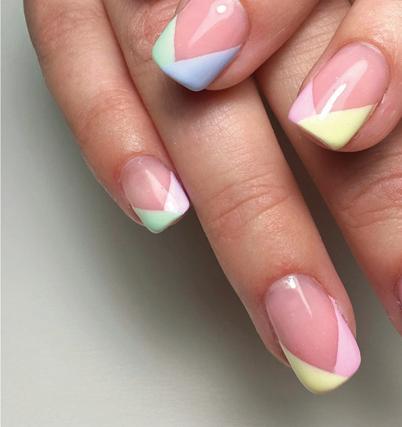







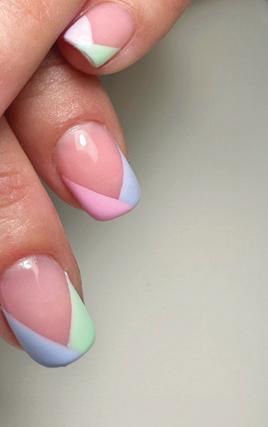
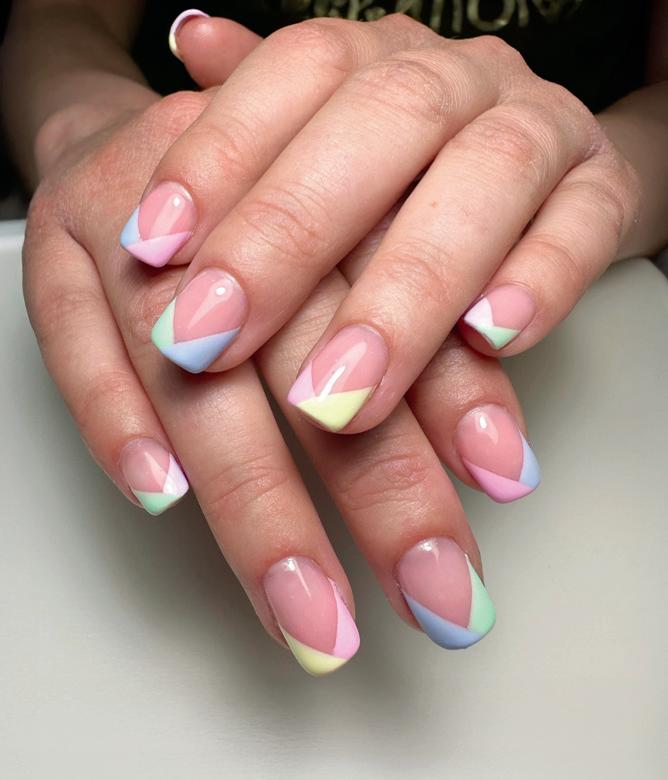









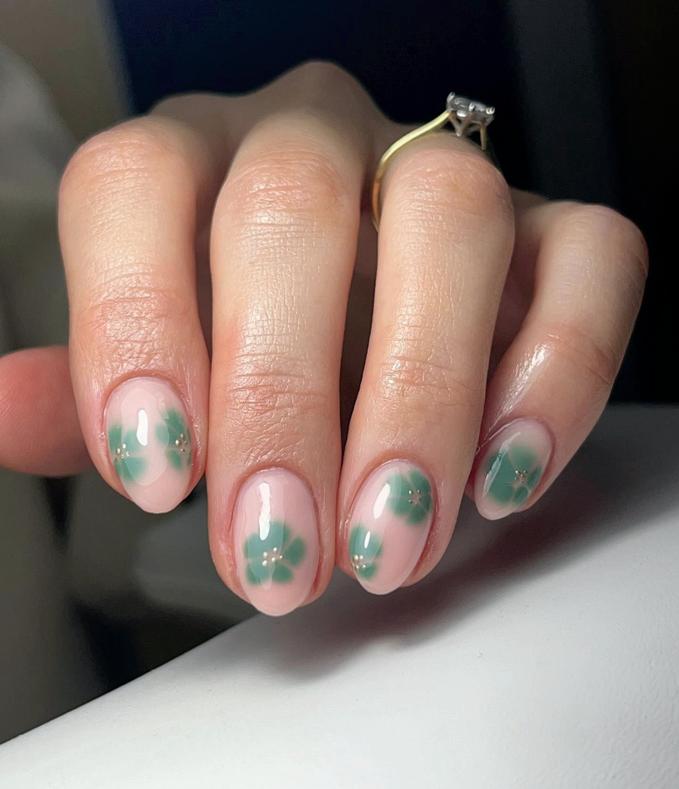









Have you created a style that you’re particularly proud of and want to shout about? Then post a picture to Instagram with the hashtag #salonfocus or tag @nhbfsocial and your shot could be included on these pages.




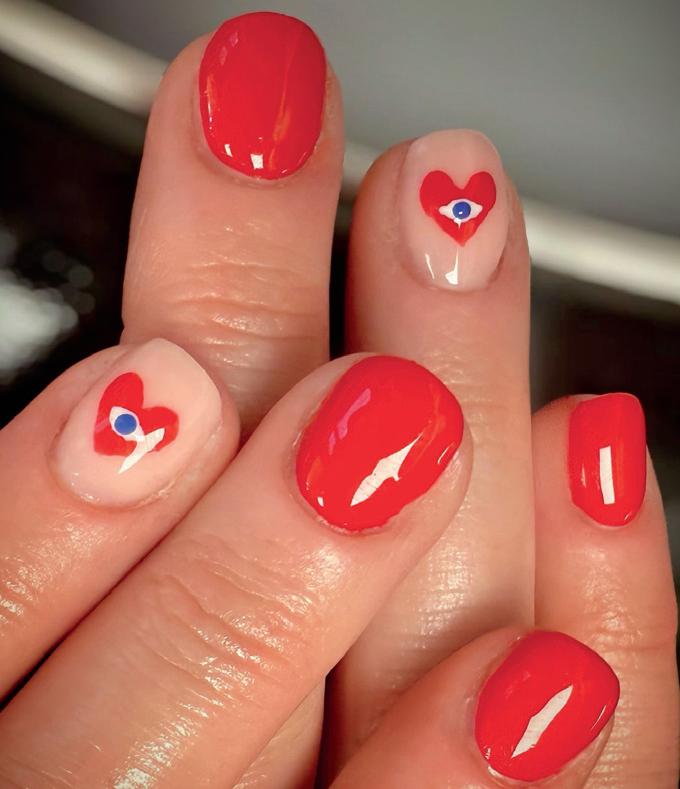

@thebrowjob.co.uk
One half of Tatti Lashes, Elliot shares the global brand’s story – from separate salon owners to The Sunday Times Beauty Rich List 2025.
We no longer have salons… We kept them on for 12 to 18 months after launching Tatti Lashes, but due to our successful growth in the first year, we knew it was the best decision to focus full-time on the brand and keep up with demand.
We were just winging it… in the first few years – we didn’t have the team structure we do today. Charlotte [joint founder] and I had to do a lot of roles ourselves, which we didn’t have a clue about. I would say we struggled most with the finance side and HR, but luckily we don’t have to do that any more.
Beauty professionals are a huge part of our business… We both come from a lash tech background, so we understand the importance of quality and affordability. The brand concept is built around both lash techs and make-up artists – we wanted to offer luxury false lashes that are a staple in their kit with a wide range of styles.
We’ve had so many amazing moments… but our greatest is the collaboration with Khloé Kardashian. We worked so hard on perfecting the products and really pushed ourselves. We’re so proud of what we created, from the products to the campaign – it was all a dream.

The team we have built is another huge achievement… considering we started out just as two best friends and we now have two offices, with experts helping to scale the business further. It’s been hard to let go of certain areas, but I know what my strengths are and I focus on them.




TATTI STATS
#19 – Elliot and Charlotte’s joint positions in The Sunday Times Beauty Rich List 2025. In 2024:
● A Tatti lash was sold every five seconds
● More than six million units were sold to 137 countries and 4143 cities
● They had 70 employees
I only got one GCSE… which was an A in art – I got D and below in the rest. I really struggled with what I wanted to do after school. I never thought I would go on to use my creativity, but I do every day – from working on shoots and campaigns to graphics on packaging, brand aesthetics and the social team.
Hard work and consistency… have been the foundation of our success, along with offering high-quality products that our customers trust. It’s important to understand your customers’ needs and to develop as a brand as those needs change.
Believe in yourself and go for it… that’s my advice to any salon owners with a side hustle. I almost didn’t go ahead with the brand because I didn’t have much confidence at the time.
You’ve got to make mistakes… in order to learn and grow. The business lessons I’ve learned along the way are to trust your gut and go with your instincts.

YOU NEED TO RUN YOUR BUSINESS IN ONE PLACE!
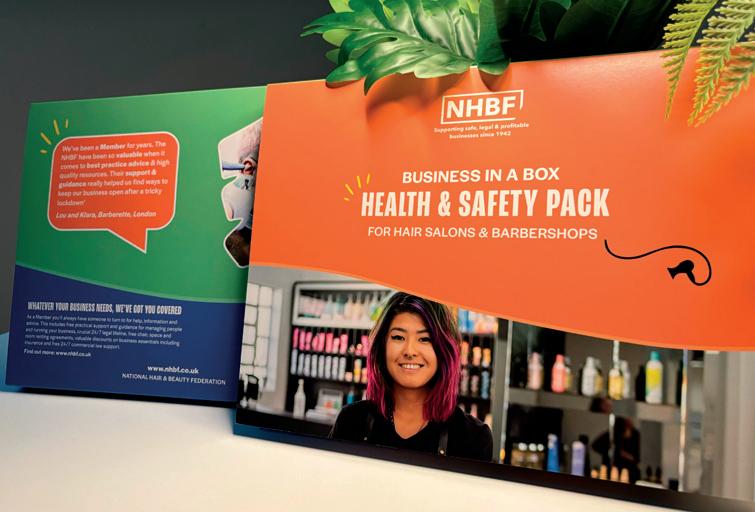
Our Business in a Box health and safety packs are the solution you need to make sure you’re prioritising a safe and efficient workplace. Created for both hair and beauty businesses, the full packs can be downloaded and are FREE to Members. Printed versions are also available to purchase.
Scan the QR code, visit nhbf.co.uk/bib or call our team on 01234 831 965 to find out more.
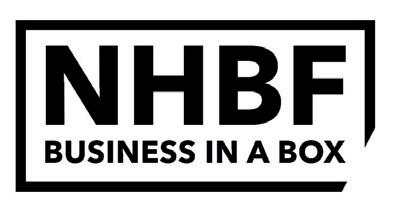









best in hair with pro that
Bring out the best in curly hair with pro tools that deliver, including the Denman D38 Detangling & Styling Paddle to distribute product, detangle and define curls. Shape and style with the Denman D143 5 Row Original Styler then smooth hairlines, shape and finish with the Denman D91 Backcomber Brush.


